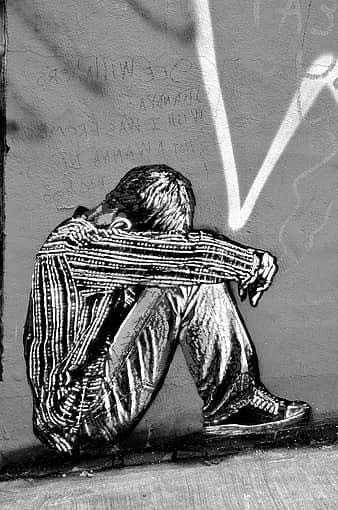
In this article we will deal with the problem of emotional abuse from a Stoic perspective. There are two forms of emotional abuse and we will address both.
Emotional abuse is something people face on a frequent basis, yet despite this, it can be hard to spot. That is because most of us notice emotional abuse when it is intended and active, but it can also be passive and draining, and therefore not as apparent. Regardless of which form of emotional abuse we experience, we should be able to recognise it and be prepared to act.
Stoics had a practical approach to acting on this kind of behavior, which involves categorizing “emotional abuse” in the category of “others’ minds”. However, this is made difficult because people often mistake other minds for their own mind. This happens when we mistake others’ thoughts and feelings for our own. In this case, a victim of emotional abuse fails to identify themselves as the victim of emotional abuse, and in particularly troublesome instances, the victim can falsely believe their abuser to be the true victim.
Dismantling the Voices of Abuse
Our first focus will be on that form of emotional abuse that is easily recognized. For this topic, it is advisable to start with the main principle of Stoic philosophy – we need to understand that others’ minds, opinions, emotions and values are not within our control. Once we realize this, we can begin to act in accordance with it.
“Choose not to be harmed — and you won’t feel harmed. Don’t feel harmed — and you haven’t been.”
Marcus Aurelius
It may sound nonsensical, but we can choose not to be harmed by others’ emotional excesses. We can observe their behavior and notice that some words and reactions may never have been expressed if they weren’t triggered by something or overwhelmed by their emotions.
This observation is always objective; it is as though we are holding the soul of the person in the palm of our hand while we are observing it from all sides. Once we do that, our mind can remain calm and we will be able to understand the situation enough to avoid becoming emotionally hurt. Once we are calm, we can potentially calm the other person, too.
“External thinks are not the problem. It’s your assessment of them. Which you can erase right now.”
Marcus Aurelius
It would be wrong to ignore a person who is emotionally abusive, because their behavior will only continue. If abusive behavior can be handled, then according to the Stoic principles of cosmopolitanism and brotherhood, we should help the other overcome their distress. However, if we can’t change their condition, it is best to look to the people who can help us.
Meditation and Cleansing
Meditating can cleanse our mind from harmful emotional influences, along with countless other positive benefits. This is particularly useful when emotional abuse is apparent, as it can help us understand how to deal with the situation. At the same time, meditating can help us even if we are not aware of the presence of emotional burdens.
Mindful meditations are also considered a conversation with oneself, and it can help reveal any harmful influences that may have been hidden. Your meditative path should lead to the core of your mind and to your impressions towards different events. If there is a strong emotion that troubles you (e.g. fear, anger, jealousy, envy), imagine a situation where you would act according to that emotion. You will likely perceive the great destructive force that this emotion contains and you will try, as any reasonable being would, to withdraw from it.
“Other people’s views and troubles can be contagious. Don’t sabotage yourself by unwittingly adopting negative, unproductive attitudes through your associations with others.”
Epictetus
Some emotions are not ours. This statement may seem unreasonable, but we must keep in mind that strong emotions are contagious and they can easily jump from another person to our mind. Through meditation, it is easy to follow the trails of these invasive emotions and ultimately discard them as intruders.
These intrusive emotions are always the cause when it comes to emotional abuse or trauma. Our negative emotions never come from ourselves in these instances; their source is always external. The simple Stoic rule of control can help us to navigate through our thoughts and actions and discard anything that is not our own:
“Of things some are in our power, and others are not. In our power are opinion, movement toward a thing, desire, aversion (turning from a thing); and in a word, whatever are our own acts: not in our power are the body, property, reputation, offices (magisterial power), and in a word, whatever are not our own acts.”
Epictetus










